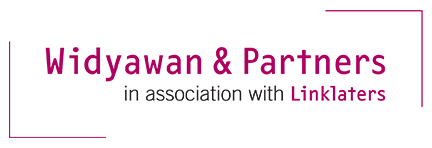Businesses welcome EUDR delay, but compliance still challenging
Submitted by Windianingrum on Fri, 12/13/2024 - 10:27Businesses have welcomed the one-year postponement of the European Union Deforestation-Free Products Regulation (EUDR) but warn that full compliance with the requirements remains challenging, especially for smallholder producers.
Previously, the Council of the EU had reached agreement with the European Parliament on Dec. 3. Under the new timeline, big firms must comply with the regulation by Dec. 30, 2025, while small and medium enterprises (SMEs) have been given until June 30, 2026.
The regulation, initially scheduled to take effect on Dec. 30 this year, would require exporters of cocoa, soy, timber, cattle, palm oil, rubber, coffee and their derivatives to ensure that their products are not produced on deforested land, including by providing proof of geolocation data.
The postponement came after multiple countries, including the United States and Indonesia, called on the EU to delay the ban on imports of products driving deforestation, as the regulation would harm those unable to comply.
Soetanto Abdoellah, chairman of Indonesian Cocoa Board (DKI), told The Jakarta Post on Tuesday, he expected the postponement would boost cocoa exports next year, allowing local producers to capitalize on the rising price of the commodity.
Starting the year at about US$4,400 per tonne, cocoa bean futures prices peaked at around $12,000 in April. As of Dec. 10, cocoa prices were around $10,000 per tonne.
The Indonesian Palm Oil Producers Association (GAPKI) said it expected there would be little change in crude palm oil (CPO) export projections next year despite the EUDR delay, as European countries continue to demand the product and no changes occurred in terms of substance.
Meanwhile, the Indonesian Coffee Exporters and Industry Association (AEKI) noted there was likely to be a slowdown in the first few months next year, as European countries had stocked up on coffee in anticipation of the EUDR implementation at the end of this year.
Struggle persists
The DKI’s Soetanto said most cocoa producers in Indonesia were smallholders, who need significant time and resources to comply with EUDR requirements, particularly in providing geolocation data to confirm that farms are not located in forest areas. “We think a one-year postponement is not enough.
Another delay of the EUDR would give us more time to meet the requirements,” he said. Soetanto added that the process not only needed time, but also required money, training and proper tools to meet the requirements made by the EU. Mulyono Soesilo, department head for specialty and industry at the AEKI, agreed that smallholder coffee farmers were still struggling to meet EUDR requirements due to cost and technical challenges.
Thus, he urged the government to pay closer attention to these issues. GAPKI chairman Eddy Martono suggested that the government continue lobbying the EU to accept Indonesia’s National Dashboard for Sustainable Commodity Data and Information, which is the state-sponsored solution to address traceability of its commodities amid pressing environmental concerns. He also pointed out there was supposed to be a middle ground on whether smallholder farmers must publish their geolocation data, which currently remains debatable.
Nevertheless, environmental analysts have argued that meeting EUDR standards, including the geolocation process, is not overly complex and could be finished during the one-year delay, if the government had sufficient political will. Syahrul Fitra, a campaigner with Greenpeace Indonesia, stated that obtaining geolocation data is doable and recent technology developments had eased its implementation. Delays may only occur if there are conflicts over land ownership.
He added that the government could address these issues by providing incentives to smallholder farmers, potentially with support from importing countries.
Syahrul also rejected the notion that the EUDR only adds burdens to small farm owners. “It could be an opportunity for smallholder farmers to boost their bargaining power,” he told the Post on Thursday. Achmad Surambo, executive director of the CPO organization Sawit Watch, agreed that collecting geolocation data was not particularly difficult.
The government only needs to map regions with high export volumes to European countries and provide training to farmers in those areas, he said. “It is just a matter of political will from the government and other stakeholders […] I think there is negligence and a lack of seriousness from the central government, especially since there are funds in the Palm Oil Plantation Fund Management Agency [BPDPKS] that may be channeled [into the projects],” he told the Post on Thursday.
This article was published in thejakartapost.com with the title "". Click to read: https://www.thejakartapost.com/business/2024/12/13/businesses-welcome-eu....
Download The Jakarta Post app for easier and faster news access:
Android: http://bit.ly/tjp-android
iOS: http://bit.ly/tjp-ios
